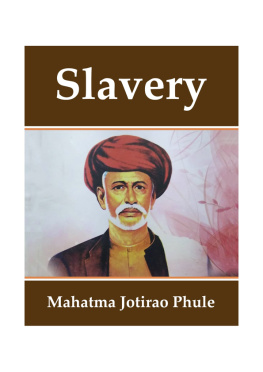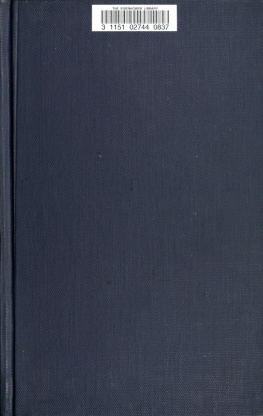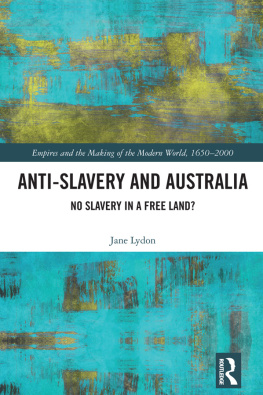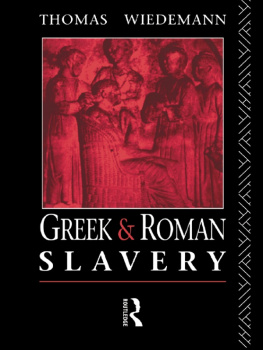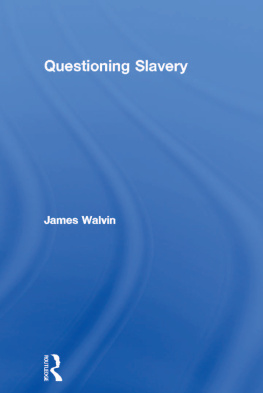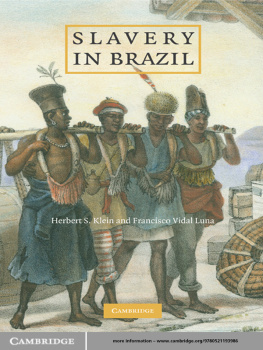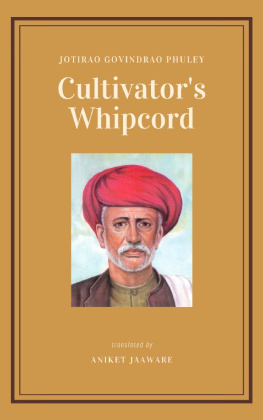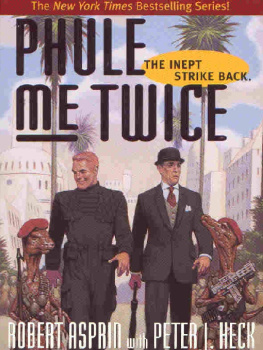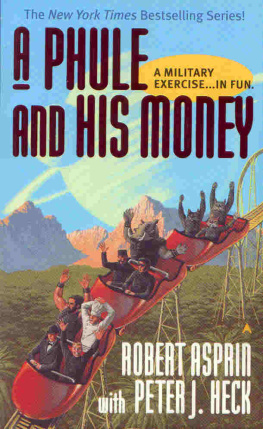Jotirao Phule - Slavery
Here you can read online Jotirao Phule - Slavery full text of the book (entire story) in english for free. Download pdf and epub, get meaning, cover and reviews about this ebook. year: 1991, publisher: Government of Maharashtra, genre: Science. Description of the work, (preface) as well as reviews are available. Best literature library LitArk.com created for fans of good reading and offers a wide selection of genres:
Romance novel
Science fiction
Adventure
Detective
Science
History
Home and family
Prose
Art
Politics
Computer
Non-fiction
Religion
Business
Children
Humor
Choose a favorite category and find really read worthwhile books. Enjoy immersion in the world of imagination, feel the emotions of the characters or learn something new for yourself, make an fascinating discovery.
- Book:Slavery
- Author:
- Publisher:Government of Maharashtra
- Genre:
- Year:1991
- Rating:5 / 5
- Favourites:Add to favourites
- Your mark:
- 100
- 1
- 2
- 3
- 4
- 5
Slavery: summary, description and annotation
We offer to read an annotation, description, summary or preface (depends on what the author of the book "Slavery" wrote himself). If you haven't found the necessary information about the book — write in the comments, we will try to find it.
Slavery — read online for free the complete book (whole text) full work
Below is the text of the book, divided by pages. System saving the place of the last page read, allows you to conveniently read the book "Slavery" online for free, without having to search again every time where you left off. Put a bookmark, and you can go to the page where you finished reading at any time.
Font size:
Interval:
Bookmark:

The Government of Maharashtra has decided to celebrate the year 1990-91 as the death centenary year of Mahatma Jotirao Phule with due solemnity. As part of the said centenary, the Government also decided to publish the Collected Works of Mahatma Phule in English in a number of volumes.
The Government, therefore, constituted the Mahatma Phule Death Centenary Committee which organised a number of functions and activities throughout the year 1990-91 to mark the occasion.
I am happy to present the First Volume of the Collected Works of Mahatma Phulenamely Slavery' . This was published in Marathi in 1873. The full title of the book runs as follows:
Slavery (in the Civilised British Government under the cloak of Brahmanism)exposed by Jotirao Govindrao Phule (1873).
The prescience of Jotirao is reflected in the Dedication of this slender booklet. Jotirao dedicated this book to the good people of the United States as a token of admiration for their sublime, disinterested and self-sacrificing devotion in the causes of Negro Slavery.
Jotirao hated slavery in any form. Physical slavery is bad enough, but the slavery of the mind and spiritperpetrated in the name of religion upon the Shudra and Ati-shudra inhabitants of India down the ages is a blot on the fair name of Hinduism. Jotirao pours ridicule and contempt upon the Aryan interlopers for their tyranny.
Jotirao hoped that his countrymen will be inspired by the noble example of the American people to undo this wrong by emancipating the Shudra and Ati-shudra from the trammels of Brahmin thraldom.
The Centenary Committee entrusted the work of translating these important volumes by Jotirao into English to Barrister P. G. Patil, who is an eminent Professor of English and a reverent student of the philosophy of Mahatma Phule and the Satyashodhak Movement in Maharashtra.
I do hope the younger generation of Maharashtra will study this book reverently, will imbibe its seminal teaching and will try to translate those noble ideas into their personal and social life. By so doing, they will blaze a new trail not only in Maharashtra but in India as a whole.
This will please the soul of Mahatma Phule and will enrich and ennoble the fabric of social and cultural life of Maharashtra. I have great pleasure in commending and recommending this important volume Slavery by Mahatma Phule to the discerning people of Maharashtra in particular and of India in general.
Date: 1 st June 1991 SHARAD PAWARChief Minister
Mr. Nelson Mandela, the acknowledged leader of the liberation movement in South Africa, visited India last year. The State Government of Maharashtra under the leadership of Chief Minister Shri Sharad Pawar proposed to invite him to Bombay. This being the Centenary Year of Mahatma Phule s Death Anniversary, the State Centenary Committee decided to present to Mr. Nelson Mandela the English Translation of Mahatma Phule s ( Slavery ) and Dr. Babasaheb Ambedkars Annihilation of Caste as most fitting offerings. The Committee requested Prof. P. G. Patil (Bar-at-Law) the well-known scholar and Satyashodhak intellectual to undertake the task of translating the book Gulamgiri in English which he did with the devotion of a faithful in a record short time. The Committee is beholden to him and I offer him heartfelt thanks. My thanks are also due to Shri Hari Narke the upcoming and promising researcher for the pains he has so gladly taken in the implementation of the project.
Mahatma Phule was just not a Social Reformer, but was a Social Revolutionary who proved to be the Founding Father of the Indian Renaissance movement of modern times. Dr. Babasaheb Ambedkar therefore naturally accepted him as his Masterone of the Gurus.
Mr. Nelson Mandela visited India but he could not make it to Bombay. Babasahebs Annihilation of Caste was a speech prepared but not delivered. History has repeated itself in a way. This book was translated and printed but not delivered to Mr. Mandela in person as he could not visit Maharashtra.
| Bombay: 2 nd June 1991 | D. T. Rupwate Executive President |
The genesis of this English translation of Mahatma Jotirao Phules Slavery is rather interesting. At the first meeting of the Mahatma Phule Death Centenary Central Committee held in late June 1990, the noted Phule activist Shri Baba Adhav broached the novel idea that Slavery be translated into English and it be presented to the celebrated African anti-apartheid leader Dr. Nelson Mandela who was due to visit India in October 1990. The Committee unanimously accepted Baba Adhavs proposal and further resolved to ask me to undertake this task. I readily accepted it and completed the task by October 1990. The same is now being published, and it is hoped that the first copy will be sent by airmail to Dr. Nelson Mandela in South Africa. This happy event would have delighted the heart of Mahatma Jotirao Phule to no end.
Mahatma Phule published Slavery in 1873. The opening words of the Preface are as follows:
Since the advent of the rule of Brahmins for centuries (in India), the Shudras and the Ati-shudras are suffering hardships and are leading miserable lives. To draw people's attention to this, and that they (the Shudras etc.) should think over their misfortune, and that they should eventually set themselves free form this tyranny of the Bhats (Brahmins) perpetrated on them is the main aim of (writing) this book. Jotiraos thesis is that the Aryan Brahmins were Iranians, that they came to India from a foreign land (Iran), and that they subjugated the original inhabitants of India and tyrannised over them heartlessly. In order to impress them with their own superiority, the conquerors devised many ways to perpetuate their own interests by various ways.
2. In order to overpower them and keep them in thraldom for ages, the Aryans produced many spurious religious tracts and claimed to have received them directly from God as revelations.
3. Even a cursory and casual acquaintance with these spurious tracts is enough to explode the myth of their divine origin. The Bhat authors concocted these spurious tracts in the name of God, dispossessed the common natives of their legitimate rights and assumed for themselves a pre-eminent place in the hierarchy of society. The depressed and downtrodden natives were deliberately kept ignorant by the Bhats, the better to serve their nefarious objects.
4. The title of this tract is significant, Slavery (in the civilised British Government under the cloak of Brahmanism) exposed by Jotirao Govindrao Phule.
5. The book is divided into sixteen chapters. Jotirao has added four poems (composed by himself) at the end which describe vividly the shameless manner in which the Bhats oppressed the helpless Shudras and Ati-shudras.
6. Jotirao has given an allegorical interpretation of some of the ten incarnations () which may sound a bit fanciful to a modern reader. This foray into the field of Evolution (enunciated by Charles Darwin in 1859) is interesting and audacious. Considering that Jotirao penned the tract fourteen years after Darwins book was published, his thesis sounds plausible and fanciful. Jotirao chose the incarnation of Parashurama for special castigation as he genuinely believed that Parashurama and the various legends associated with him were calculated to highlight the Aryans invasion and conquest of the original inhabitants of India.
7. In the opening paragraph of his English Preface to Slavery, Jotirao pointedly alludes to the mythological story of King Baliraja and Vamana (Waman). He regards Baliraja as a champion of the original inhabitants of India, and Vamana as an interloper and a fraudwho treacherously condemned Baliraja to the nethermost region. Jotirao quotes the popular saying, common among the toiling masses of India: () . (Let all troubles and misery go and let Balis kingdom come!)
Font size:
Interval:
Bookmark:
Similar books «Slavery»
Look at similar books to Slavery. We have selected literature similar in name and meaning in the hope of providing readers with more options to find new, interesting, not yet read works.
Discussion, reviews of the book Slavery and just readers' own opinions. Leave your comments, write what you think about the work, its meaning or the main characters. Specify what exactly you liked and what you didn't like, and why you think so.

